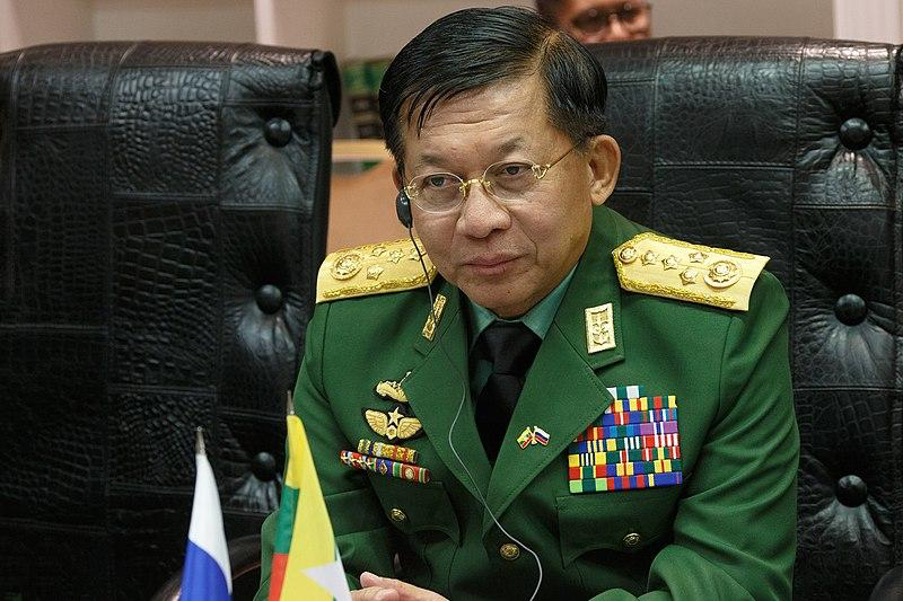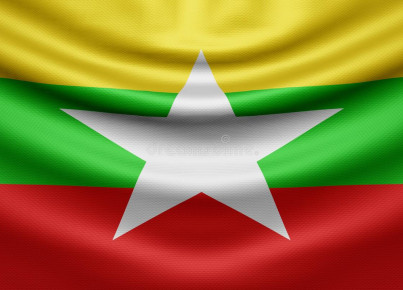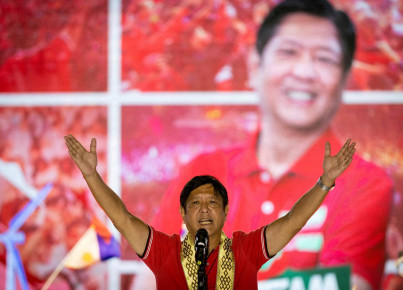On 8th November, a day of semi-free elections in Myanmar’s ‘disciplined democracy’, Min Aung Hlaing, Commander-in-Chief of the Burmese Army, pledged to accept the will of the people and the results of the vote. However, less than three months later, a military coup led to the arrest of Aung San Suu Kyi, leader of the party that won the elections, the declaration of a state of emergency, and the appointment of the Commander as President of the newly formed State Administration Council. Nevertheless, the 64-year-old general is not someone who changes his mind easily.
Min Aung Hlaing was born in 1956 in Tavoy, now Dawei, the capital of Tenasserim, a region in the far south of the country, bordering on Thailand, formerly disputed by the Burmese and Siamese regimes. As Le Monde writes, the general is not homme du sérail (a courtier) but a provincial man, who moved to Yangon to follow his father’s job and with the dream of pursuing a military career. Thus, Min Aung Hlaing enrolled in law school at the University of Rangoon (now Yangon) while preparing for the entrance exam to the prestigious Defense Services Academy, where he eventually entered in 1974, on his third attempt.
His former classmates remember the young cadet as a “man of few words” who would always prefer to keep a low profile. Gradually, the future general started climbing up the hierarchy of the Tatmadaw. The year 2002 marked a turning point when he was promoted to Commander of the Triangle Region Command in Eastern Shan State, where 82% of Burmese opium is produced. There Min Aung Hlaing learned how to negotiate with the local ethnic groups and guerrillas which have been fighting each other and the Burmese army for decades. A 2009 offensive against the Burmese-Chinese rebels in Kokang, a self-administered region on the border with the People's Republic, earned him the trust of Than Shwe, the strongman of Myanmar from 1992 to 2011.
In that same year, somewhat surprisingly, the ‘old’ leader left the command of the army to the ‘young’ Min Aung Hlaing – "battle-hardened warrior of brutal Burmese Army" as well as a "serious scholar and gentleman" – at a time when Myanmar was preparing for a democratic transition. With the 2008 constitution, the Tatmadaw had secured its role as the guardian of national unity and the Commander-in-Chief was quite possibly "the most powerful man in Myanmar". As a matter of fact, Min Aung Hlaing was able to select the ministers of defence, interior, and border affairs ministers, appoint a quarter of parliamentarians, and prevent any attempt to curb his power.
Unsurprisingly, the National League for Democracy (NLD), which won the 2015 elections – the first ‘free’ elections since 1990 – had to reach an agreement with the general. In the years following, Min Aung Hlaing participates in official events alongside Aung San Suu Kyi and established personal relationships with foreign dignitaries. The violent repression of the Muslim Rohingya minority in 2016-2017, which the UN Human Rights Council dubbed as ‘genocide’, only increased his popularity among the country’s Buddhist majority. Before being blocked by Facebook Inc., his profile was attracting hundreds of thousands of likes and by then the General was persuaded that “If the people get the right information about the army they will understand" that the army was in fact defending their interests.
When the general elections in November 2019 resulted in a landslide victory for the League, despite several allegations of fraud mainly coming from the army, there was some speculation of a possible agreement that would lead Min Aung Hlaing to the presidency. When this outcome did not materialize and the NLD decided to shun all compromises, the General, who strongly believed that "the history of the country cannot be separated from the history of the Tatmadaw," decided to use his “right to take over and exercise State sovereign power”. During an interview with a Hong Kong-based Chinese language broadcaster, the first one after the coup, Min Aung Hlaing admitted that he was a little surprised by the resistance of the people: "I didn't think it would be so much."






